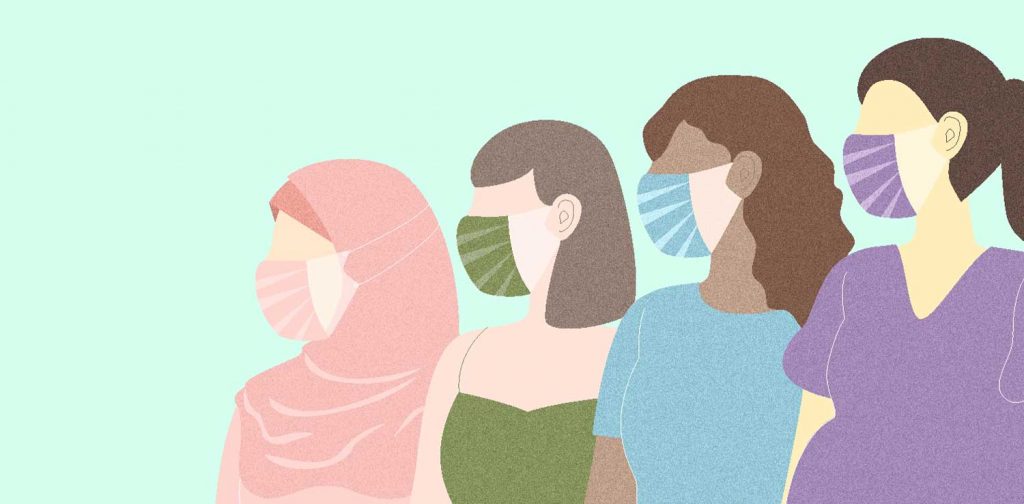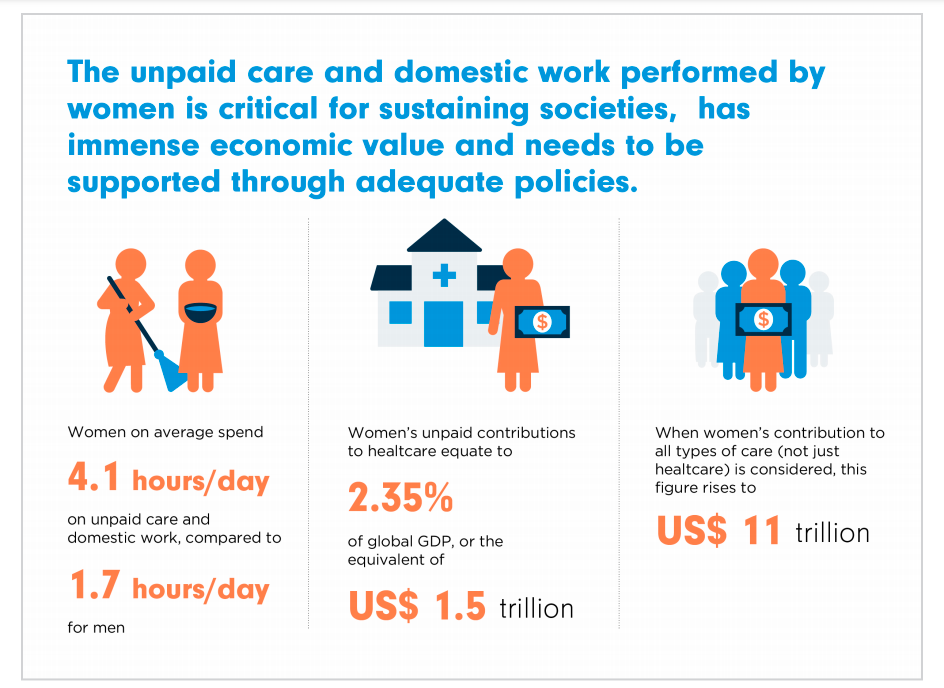The UN Reports Impacts of COVID-19 on Women, Advises Women-Centered Recovery Efforts

Illustration by Inez Kriya
Over the last decades, there has been an improvement in gender equality, e.g., fewer girls are forced into child marriage, and more women are in leadership roles. The COVID-19 pandemic, however, is deepening pre-existing inequalities, exposing the vulnerabilities of women and girls in all spheres of development. In response to the situation, the United Nations (UN) published a Policy Brief, “The Impact of Covid-19 on Women.”
The Policy Brief explains how the COVID-19 pandemic impacts women and girls disproportionately, simply by virtue of their sex. It classifies the impacts into different spheres, i.e., economic impact, health impact, unpaid care work, and gender-based violence, which further amplifies in contexts of fragility, conflict, and emergencies. The UN then outlines suggested priority measures as guidelines for immediate national response and longer-term recovery efforts.
“COVID-19 is not only a challenge for global health systems but also a test of our human spirit. Recovery must lead to a more equal world that is more resilient to future crises,” says the UN in the Policy Brief.
Globally, women earn less, save less, hold less secure jobs, and are more likely to be employed in the informal sector with less access to social protection, making them vulnerable to poverty. As women also take on greater care demands at home, their jobs are also more likely to be affected by cuts and layoffs.
Women also make up the majority of healthcare staff; hence, increasing their exposure to the virus. Paradoxically, women are reported to have less access to quality health services, essential medicines and vaccines, maternal and reproductive health care, or insurance coverage for routine and catastrophic health costs, especially in rural and marginalized communities.
Globally, 243 million women and girls aged 15-49 have been subjected to sexual and/or physical violence perpetrated by an intimate partner since the emergence of the pandemic, and the number is projected to increase. Data shows that violence against women and girls has intensified during the COVID-19 pandemic, particularly domestic violence. Women and girls also experience domestic burdens that are invisible and unpaid.

“National responses must place women and girls -their inclusion, representation, rights, social and economic outcomes, equality and protection- at the center if they are to make the necessary impacts,” adds the UN.
The Policy Brief emphasizes three cross-cutting priorities that reflect the Secretary-General’s recent Call to Action on Human Rights, which singled out measures that, according to the UN, if pursued, would have a meaningful impact on the rights of women and girls, especially in the context of the pandemic.
First, ensure women’s equal representation in all COVID-19 response planning and decision making. The UN says that based on evidence from across sectors, including in economic planning and emergency response, policies that do not consult women or include them in decision-making are less effective and can even do harm. Individual women and women’s organizations are often on the front line of response in communities. They should be represented and supported.
Second, drive transformative change for equality by addressing the care economy, paid and unpaid. The UN says that even in the formal economy, in care jobs from teachers to nurses, women are relatively underpaid. In addition, women are still demanded to perform the bulk of unpaid and invisible care work at home. The UN says that both are foundational to daily life and the economy but are premised on and entrench gendered norms and inequalities.
Third, target women and girls in all efforts to address the socio-economic impact of COVID-19. The UN says that it is very important to apply an intentional gender lens to the design of fiscal stimulus packages and social assistance programs to achieve greater equality, opportunities, and social protection.
Women-centered COVID-19 recovery efforts should be in the interest of all, not only women and girls but also men and boys, since women have been the hardest hit by the pandemic while being the backbone of recovery in communities.
Editor: Marlis Afridah

Aliyah Assegaf
Aliyah is a Contributing Author at Green Network Asia. She graduated from Universitas Indonesia with a bachelor's degree in Social Welfare.

 Test Custom Feature Image
Test Custom Feature Image  Electric Vehicles Roam the Roads of Kenya
Electric Vehicles Roam the Roads of Kenya  FedEx Engages Employees with Beach Clean-Up Initiative
FedEx Engages Employees with Beach Clean-Up Initiative  Come Back Stronger: Building Philippines’ Resilient Economy Post-COVID-19
Come Back Stronger: Building Philippines’ Resilient Economy Post-COVID-19  5 Food System Actors That Have Taken the 123 Pledge to Reduce Food Loss & Waste
5 Food System Actors That Have Taken the 123 Pledge to Reduce Food Loss & Waste  How Protection Law and Global Commitments Can Accelerate China’s Wetland Conservation
How Protection Law and Global Commitments Can Accelerate China’s Wetland Conservation  Test premium post
Test premium post